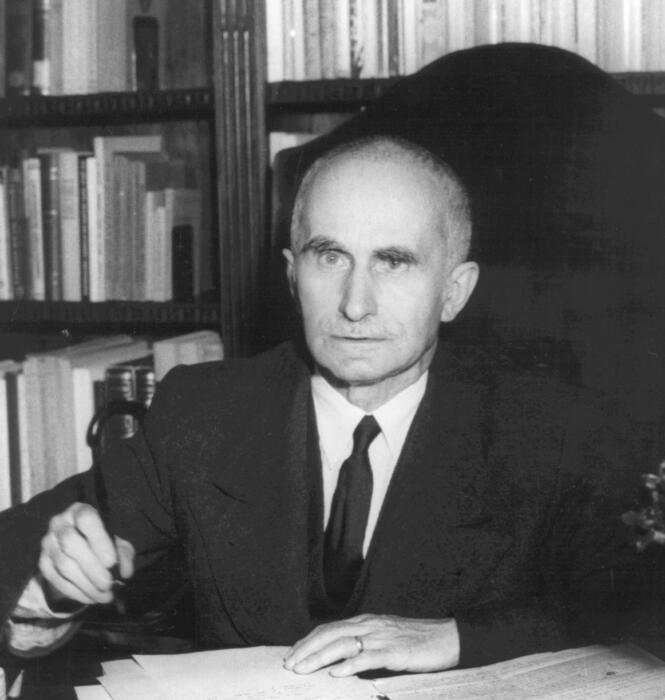07/26/2021 6:00
Clarín.com
BrandStudio
Updated 07/26/2021 6:00 AM
Sponsored Content
Some words are difficult for you to understand, especially when there is background noise.
It is becoming more and more difficult to talk on the phone.
You no longer enjoy music or the volume of your television is increasing ... If you identify with any of these situations, it is important that you stop ignoring these signals and go to a hearing professional.
Generally, it also happens that hearing loss happens gradually, so it is common for the same person to ignore it and it is a family member who notices it first.
In either situation,
early intervention can make a big difference in
long-term
health
and well-being.
Do not believe that, being an older adult, it is a losing battle.
Absolutely.
It is known that the effort required to listen and understand can be exhausting.
Fortunately, hearing loss can improve through the use of hearing aids, hearing implants, and other devices.
Meanwhile, the treatment and the hearing solution will depend on the cause and type of loss.
The cochlear implant directly stimulates the inner ear.
Technological solutions
As for the hearing aid (appropriate for people with mild to severe loss), it amplifies the sound, while the
cochlear implant
directly stimulates the inner ear and would be indicated when the appropriate hearing aid for a hearing loss does not provide the opportunity to detect the speech or advance in listening, speaking and language skills.
From the
Professor Diamante Cochlear Implant Center
, a place with the maximum experience in Latin America, they report that the limitations generated by severe and profound hearing loss can be reversed thanks to the cochlear implant.
The patient significantly improves the quality of life, being able to enjoy family encounters, social relationships, improve their academic and work performance, in short, achieve a fuller life.
The groups that can access a cochlear implant are:
• Children from one year of age, with profound, bilateral or unilateral hearing loss, who do not respond to auditory stimulation with hearing aids.
• Pre-lingual adolescents and young adults (these are cases of hearing loss who currently see a solution to their lack of hearing)
• Post-lingual adults (they are people over 18 years of age who, due to progressive or sudden hearing loss, for various reasons, suffer a severe loss of their hearing)
• People with multiple disabilities (children, adolescents and adults)
• People with unilateral deafness and asymmetric
• Adults over 65 years of age, without age limit.
“It is the group of elderly and elderly adults that generated the most doubts and resistance to the cochlear implant, which were dissipated with the results obtained in various implantation centers around the world and with our own.
Today there is a lot of scientific evidence that shows that age should not be a reason to exclude an older adult from being a potential candidate, since the benefits obtained with the cochlear implant are very significant ", says Professor Dr. Vicente Diamante ( MN 19960).
There is no age limit to access a cochlear implant.
In older adults, hearing loss generates a decrease in the quality of life, limitations in activities of daily living, modifies the person's ability to communicate with others, and thus affects interpersonal relationships, associated with:
depression, loneliness , isolation and altered self-esteem
. Hearing loss in this group is associated with cognitive impairment, and can lead to its acceleration. Recovering hearing with a cochlear implant, older adults achieve clear improvements in their hearing ability, quality of life, mood, cognitive skills, and achieve social, family and work reintegration.
Cochlear implant surgery is minimally invasive, with an estimated duration of 1 hour and a half. The hospitalization is 12 hours while the post-operative, painless and asymptomatic, is one week. It requires very little care such as: do not wet the wound, do not touch it, do not receive blows, do not perform physical activity, that is, it is
not necessary to remain in complete rest
.
To achieve a comprehensive approach, the
Professor Diamante Implant Center
accompanies all the stages of its patients from the initial evaluation by the entire team, with psychological support, in individual sessions and group meetings (now virtual), together with the advice of the Department Social.
His entire team of professionals (doctor, audiologist, psychologist) maintain permanent contact with patients
In Argentina, the cochlear implant is within the Compulsory Medical Plan (PMO), therefore, if the patient has a certificate of disability, the social and prepaid works must cover 100% of the cost of the same (evaluation, surgery, electronic device, calibrations, required rehabilitation, etc).
Children from one year of age, with profound, bilateral or unilateral hearing loss, who do not respond to auditory stimulation with hearing aids can also access the cochlear implant.
Controls to babies and adults
Hearing loss is an isolating factor that the child can suffer from.
As a consequence, children with neglected hearing loss
often delay speech development
.
In our country, in 2001, law 25,415 was enacted, ordering the implementation of
the National Program for the Early Detection of Hearing Loss
. The
control is carried out free of charge
in all health centers and public hospitals. Thus, babies, in their first month of life, are audibly evaluated through the otoacoustic emission test. It is an objective, non-invasive method that allows early detection of 98% of hearing loss. There is a 2% that is not detected. Therefore, even if the study has "worked well", but for some reason a hearing problem is suspected, the pediatrician should be consulted to direct the referral to the ENT specialist.
In most cases, parents are the first people to notice that their child has hearing problems.
It is important to recognize the signs of hearing loss and take early action.
Once the child has been equipped with hearing aids or cochlear implants, they must undergo appropriate therapies, such as rehabilitation with a specialized speech therapist to help them develop their listening skills and acquire oral language.
This constitutes a key support so that they can learn to speak, read, write and thus achieve their school integration and social insertion.
Ultimately, early intervention is essential at all times in life.
That is why it
is recommended to carry out a hearing check once a year
, especially those over 50 years old, people who work in noisy places or telecommute, those who listen to music at high volume for long periods of time and of course, those who who have hearing problems.
The information contained in this notice is for informational purposes and is not intended to diagnose, prescribe treatment, or replace medical advice.














